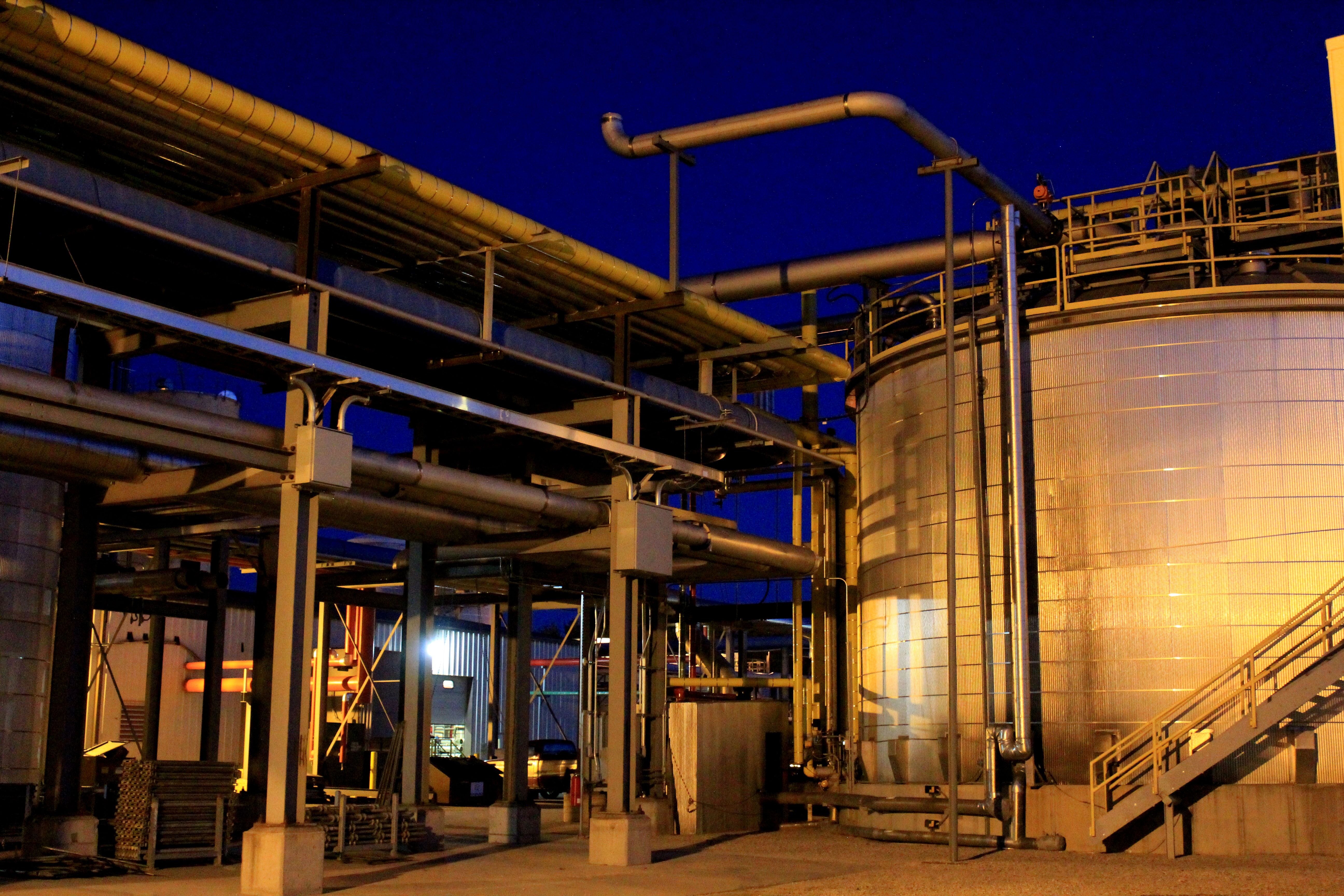
Gevo Continues Production of Isobutanol Fuel; Renewable Diesel Option for the Future
Published on March 20, 2020Gevo, a biofuel company, produces renewable fuel for marine engines. The benefits of using isobutanol make it a good choice for boaters and Gevo is working to make the biofuel alternative more available across the country.
In 2015, the National Marine Manufacturers Association (NMMA) endorsed the use of isobutanol (also called bio-isobutanol) in the production of alternative fuel, due to the problems ethanol fuel cause in boat engines.

In 2018, the Environmental Protection Agency (EPA) approved the registration of bio-isobutanol as a fuel additive. NMMA applauded EPA’s approval of bio-isobutanol as a biofuel additive, saying it would “provide consumers a safe, efficient and environmentally friendly E15 alternative that is highly compatible with marine products. This decision will promote an innovative fuel supply, with direct benefits to American boaters and consumers.”
Some of the advantages of isobutanol include:
• Isobutanol does not absorb water – a key feature for the open-vented fuel systems most boats use.
• Isobutanol stays mixed with fuel, rather than phase-separating with any water in the system.
• Its chemical makeup is not corrosive on marine fuel lines and fuel-system components.
• It will not damage fiberglass fuel tanks, nor will it cause galvanic corrosion in aluminum fuel tanks.

Isobutanol is a four-carbon alcohol produced from renewable, plant-derived energy sources in a fermentation process similar to beer and wine production. It can be produced using existing ethanol feedstocks, such as corn and sugar beets, or advanced feedstocks (cellulosic biomass) such as crop residues, wood residues, dedicated energy crops, and industrial and other wastes.
Gevo began developing isobutanol about 12 years ago and makes the fuel from inedible No. 2 corn. The company operates a fermentation plant in Luverne, Minnesota, and a hydrocarbon fuel plant in Silsbee, Texas.
CEO Patrick Gruber said the company partnered with NMMA to provide isobutanol for testing in marine engines. The multi-year program evaluated the performance of recreational marine engines and vessels operated on biologically produced isobutanol fuel.
Results published by NMMA state: “Isobutanol is particularly interesting to the marine industry as it is significantly more resistant to phase separation than ethanol. It is also less corrosive to fuel system component materials, such as fuel tanks, fuel hoses, primer bulbs, gaskets and O-rings, compared to ethanol. Lack of phase separation and low solvency means that isobutanol could be transported in the existing pipeline distribution infrastructure, minimizing the need for truck and rail transportation, which is required for ethanol. When added to gasoline, isobutanol lowers the Reid Vapor Pressure (RVP) of the finished gasoline blend, which results in lower evaporative emissions and allows for a less costly gasoline blend stock.”
According to NMMA, 95 percent of boats are fueled at gas stations. Boat owners depend on safe and reliable fuel choices to be universally available. However, using E15, which is often sold at gas stations, can cause severe damage to small engines such as those used in recreational boating.
Misfueling of engines voids warranties, leaving consumers with expensive repair and replacement bills.
Gruber said the drawbacks of fuel made with ethanol are not as apparent in automobiles because of the regular use of the engine on daily commutes. But since boat motors are used less frequently, the issues with ethanol impact the performance of the engine.
Despite the proven advantages of isobutanol, fuel made from isobutanol is not readily available for boaters to buy. Gruber said the suppliers and distributors need to hear the demand from the consumers. Gevo is helping spread the word among the boating industry and encouraging marina owners and consumers to tell their suppliers and distributors.
“The customers need to tell them they want to see a plan for it, and they want the product,” Gruber said. “On the consumer side, the only way it gets changed is if someone says, ‘I want this; bring it or I will find another supplier.’ It has to be driven from the consumer side of things or nothing happens.”
Gevo’s isobutanol is available at several retail locations in Houston, Texas. In order to make isobutanol more available in other places, the company needs commitments and contracts from suppliers or distributors in order to justify increasing the production or building other facilities.
Gruber acknowledges that isobutanol may cost more now, but there is a value for the customer who is willing to pay more. He said the benefits of using isobutanol also make it worth the cost in the long-run. “It’s a different class of gas for a different value,” he said. “I’m buying insurance that my engine is going to last longer.”
Low-carbon, Renewable Diesel
The 2020 Miami International Boat and Yacht Shows showcased the latest in advanced diesel power, demonstrating the continued innovation in power and efficiency across a diverse range of applications for new recreational boats and the largest yachts, according to a release from the Diesel Technology Forum, a not-for-profit educational organization representing leaders in diesel engine and equipment manufacturing, key component suppliers and fuel interests.
“Whether a weekend charter sportfishing boat operating a hundred miles offshore or a megayacht traversing the globe, mariners need reliable, durable and efficient power, which is why diesel remains a technology of choice,” said Allen Schaeffer, executive director of the Diesel Technology Forum.

Lowering emissions and fuel consumption are among the advancements being made in new diesel engines and systems offerings. “Mariners have a particular relationship with the environment, and each year there is an increasing emphasis on sustainability and minimizing impacts on the waterways,” Schaeffer said.
Gevo recently announced it has developed a process to make low-carbon, renewable diesel. Gruber said when the fuel is introduced it will help meet increased demand since the Renewable Fuels Standard (RFS) and California’s Low Carbon Fuel Standard (LCFS) went into effect. The renewable diesel is expected to reduce particulates and CO2 emissions, and will help the marine sector reduce sulfur emissions to meet new international water regulations beginning in 2020.
Gevo is using isobutanol as a building block in making renewable diesel. “We are the only company making diesel by starting with a carbohydrate,” Gruber said.
He estimates it will be 2023 or 2024 before the low-carbon diesel is available.
“We are still going to need the consumers’ voice,” he said. “The supply chain needs to hear it loud and clear that they want it.”
| Categories | |
| Tags |





